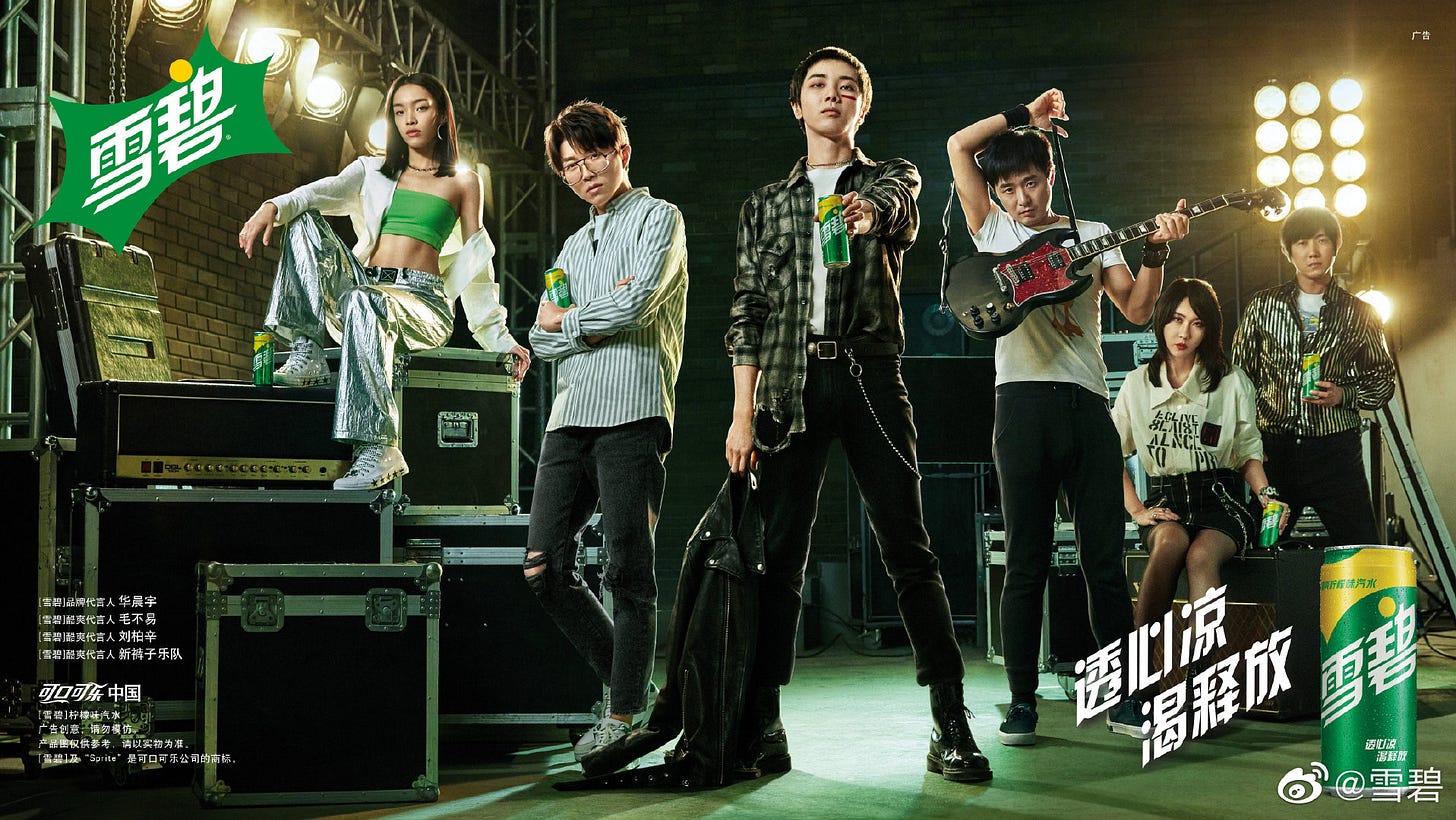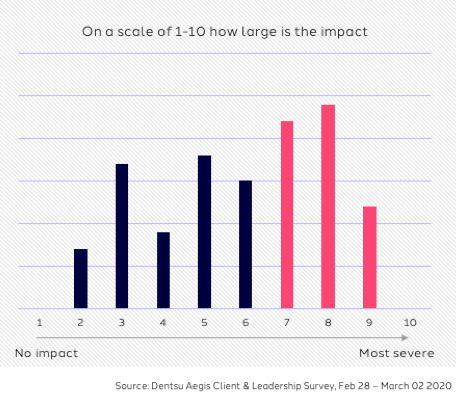How Auto Brands Build and Maintain Positive Connections
Plus: Ikea's Tmall debut, dueling tech platforms, and Sprite's "New Pants"
Not surprisingly, China’s auto sales saw the largest year-on-year monthly decline ever in February 2020, as potential buyers around the country mostly stayed home to wait out the coronavirus outbreak and put off purchasing big-ticket items.
Industrywide, there were 80% fewer cars sold than in February 2019, and carmakers have had to get creative to maintain their connections with consumers during these trying times. Even if people aren’t ready to buy this month or next, the outlook is that they will eventually come around, so the impetus for effective branding remains.
Before we get to the case studies we’d like to thank you for reading, and if you like what we’re doing, please share our newsletter with a friend or colleague!
Geely’s Good Fortune

Although domestic automaker Geely launched its Spring Festival campaign before the severity of the coronavirus was known, it was able to proceed largely as planned thanks to its upbeat and supportive messaging. Geely created a Weibo hashtag “Let 2020 be auspicious” (#2020要吉利) that directly refers to the brand’s Chinese name, which means “auspicious” (吉利, jili), invited other brands such as China Telecom and snack company Wahaha to help spread positive messages for the new year and encouraged users to share their wishes as well, drawing 38.5 million views in the process.
Recognizing the extensive links between the Spring Festival holiday period and domestic travel (often termed the world’s largest annual mass human migration), prior to the announcement of coronavirus-related travel restrictions, Geely inserted itself into various modes of transportation, creating themed flights on domestic carrier Loong Air, wrapping subway cars in Geely advertising, and establishing dozens of pop-up service stations along Chinese highways to offer hot tea, free vehicle inspections and gift bags with an auspicious Lunar New Year theme.
Geely produced a series of three brand films for the Spring Festival that departed from the overused tropes of family and reunion by focusing on the lives and ambitions of ordinary citizens, promoting the brand’s cultural values and sense of social responsibility in the process.
The automaker was also fortunate in its partnership with the major Spring Festival film “Lost in Russia.” While movie theaters were shut across China on the eve of the Lunar New Year, and all theatrical releases canceled for the lucrative Spring Festival holiday period, “Lost in Russia” was the only film to gain an audience after studio Huanxi Media made a historic deal with Bytedance that included free streaming of the film across Bytedance’s platforms, with an estimated 600 million views
At the same time, Geely also made notable contributions to charitable efforts to fight the coronavirus, starting with RMB 200 million ($28.7 million) for a special fund in founder and chairman Li Shufu’s charitable organization, along with the collection of medical supplies from overseas by Geely subsidiaries such as Volvo.
Lexus Goes Low-Key

Luxury auto brands such as Lexus are known for investing heavily on branded films, engaging top-notch directors and talent to establish their association with quality production across the board. In its latest campaign, Lexus is taking a different approach that reflects current attitudes and ongoing limitations on filming.
Lexus reached out to eight Chinese car owners to share their experiences under changed circumstances for a vlog-style series titled “The Usual Scenery” (平常风景). In the first episode (available here), freelance photographer Da Wei discusses his change in focus to family life during the coronavirus outbreak and how he uses his Lexus E300h to take his wife and son out for fresh air in open areas. Other episodes cover an entrepreneur’s strategies for business survival and how to conduct vehicle inspections at home, with relatively understated brand placement (except for the last episode, which appeared more heavily scripted).
More on the official Lexus Weibo page
Short Video Lessons

Auto brands are also among the most active in China’s burgeoning short-video sector, and while they are just starting to pay attention to TikTok, they have a long history of success on Chinese counterpart Douyin’s platform. Two examples from last year highlight their approaches:
Cadillac capitalized on a Douyin trend for photography tutorials by creating a series of short videos that taught users how to take high-quality photos with various special effects available on the Douyin app, using its CT5 model as the subject. By integrating useful content with its brand promotion, Cadillac was able to showcase the car’s design and features in a natural yet memorable manner.
BMW went for the unexpected with a 90-second video that paired model Zhao Jiali with comedian Yue Yunpeng. What appears at first glance to be a standard luxury car commercial with a serious tone morphs into a lighthearted exchange between two celebrities that retains viewer interest through storytelling.
Ikea’s Tmall Debut

And in non-auto-news, Ikea, the world’s largest furniture retailer has established an online flagship store on Tmall, marking the first time in the Swedish company’s 77-year history that its products will be officially sold through a third party. The move will pave the way for the brand to reach consumers more effectively through livestreaming on Alibaba-owned platforms and via content-driven promotions with Tmall.
The launch itself was livestreamed via Taobao Live, and introduced with an animation of Tmall’s cat-head mascot dancing alongside one of Ikea’s signature teddy bears.
The virtual store will offer some 3,800 products, or about a third of Ikea’s total range, and will be integrated with Ikea’s existing membership program. Shipments will initially be limited to Shanghai and three East China provinces, with a planned rollout to other locations.
The creation of an Ikea flagship on Tmall underscores the power of the platform, which has drawn more than half of the top global fashion brands and even online retailers such as Net-a-Porter into its fold, thanks to its ability to give brands massive exposure with targeted sales campaigns.
It also underscores the importance of digital in growing Ikea’s presence in China, where Ikea has 33 retail outlets that were temporarily closed during the height of the coronavirus outbreak (most have since reopened). Globally, online sales have accounted for less than 10% of Ikea’s total revenues, but that balance could change significantly thanks to the Tmall partnership.
Meme Fight: Tech Platforms Duel on Bilibili to Win Over Young Users

The viral success of Alibaba-owned DingTalk’s video response to haters of the productivity platform has inspired an outpouring of content from other major tech platforms eager to jump into the fray of meme-driven marketing on Bilibili, China’s leading youth-oriented video platform.
Noting that its subsidiary DingTalk’s official account had quickly amassed a huge following on Bilibili, Alibaba sought to gain more attention by uploading its own music video creation — a heavily autotuned performance of founder Jack Ma in the guichu genre that is popular on the platform.
Rival Tencent followed up with a series of videos that allude to the new pressure on major tech platforms to appear relevant to Chinese youth by promoting themselves on Bilibili, including one guichu-style video for its own productivity app, WeChat for Business.
Alibaba then doubled down on its content, with one featuring a “zoo” of its companies’ animated mascots — such as Tmall’s cat and supermarket Hema’s hippo — joining Bilibili, accompanied by an adaptation of a popular song by virtual idol Luo Tianyi (previously on CCI). Another alludes to Alibaba’s ambition to become the most popular brand account on Bilibili by throwing shade at Tencent’s follower count.
Both Tencent and Alibaba are major investors in Bilibili, making it one of the few major companies to share their backing (Douyin rival Kuaishou is another notable one).
A New Thirst for New Pants

This week Sprite announced a new set of spokespersons for 2020. Along with three singers all their twenties is the significantly older indie rock band New Pants (新裤子), which has seen a resurgence in popularity among younger audiences after taking the win last summer in iQiyi’s rock competition, “The Big Band” (乐队的夏天).
New Pants, which first rose to prominence in the 1990s, has found many fans among the Gen Z and millennial audience. Its emotionally-charged music, retro aesthetic and rebellious spirit appeal broadly to Chinese youth, and brands have taken note.
The band can also tap into the nostalgia of older fans, and its work with brands shows an ability to cross generational lines, such as in a recent short film for Lexus that featured one of its hits. More than a dozen brands have collaborated with New Pants include JD.com, fitness app Keep, Huawei, and Guangfa Bank. Charismatic lead singer Peng Lei appeared in BMW’s latest ad for the Z4 Roadster, sharing the challenges of following his dreams to become a musician.
Brand Film Pick: Behind the Scenes With Watsons

Health and beauty retail chain Watsons’ brand film for International Women’s Day looks at both the coronavirus and women’s issues, using documentary elements in its brand film for Women’s Day to highlight the impact of the coronavirus both fictionally and in real life.
The first half of the film juxtaposes scenes of women’s lives that include working on the front lines of virus control with on-screen statistics and a voiceover that describes the life choices being made by Chinese women born after 1990, as it gradually becomes apparent that the same generation being criticized for selfishness is also giving selflessly.
Then a director yells “cut!” and it is revealed that the setting was a shoot for a public service video, and the director takes over as protagonist, sharing the real-life challenges of making the film — shooting in Vancouver for Shanghai-based agency W, with post-production in Taipei and the client in Guangzhou — before turning to an uplifting discussion of real-life heroes and how women do not necessarily conform to statistics.
The film received a good deal of engagement on Weibo thanks to a Watson’s giveaway campaign that encouraged sharing of the video to win coupons worth up to RMB 1666 (US$240).
While the original video post has received 1.25 million views, the video has been shared more than 550,000 times.
View the brand film on Socialbeta.
Report Corner

The “new normal” is the subject of Dentsu Aegis’s survey of marketers and client leads in China. Slightly under half of those surveyed (47%) said that sales had been significantly or severely impacted by Covid-19 epidemic, and the report noted that consumers there have shown “remarkable resilience” under the changed circumstances.
The latest report from Publicis on the impact of the coronavirus notes that while purchase-related conversations online have declined, brand discussions have seen an uptick.
GroupM released a report on the development of the “cloud” reality show trend, breaking down the success of various programming models and noting the likely crowding of production once regular filming resumes toward the middle of the year.
News in English
Shanghai Disneyland reopened its shopping, dining and recreational outlets, though the main theme park remains closed. Reuters
Other global brands — from Apple to Starbucks — are mostly back in business across the country. China.org.cn
A dozen lessons for foreign brands from how Chinese companies have managed the coronavirus crisis. Harvard Business Review
And here are ten things marketers can (or should) do as the outbreak subsides in China. WeAreSocial
Brands both domestic and foreign may catch a break as China’s state broadcaster will postpone its annual “name-and-shame” gala show scheduled for the national consumer protection day on March 15. CFI
Beauty incubators help smaller overseas labels such as Farmacy gain a foothold in the Chinese market. Vogue Business
Taobao Live is supporting virtual tourism as a way to highlight popular locations and sell souvenirs in the process. Sixth Tone
“Mulan” had its red-carpet premiere in Hollywood, even with no China release date in sight. Radii
A look back at recent “fan wars” in China, which can have major spillover effects for brands that rely on celebrity ambassadors. Sixth Tone
We’ve Got China Covered
CFI: ByteDance’s TikTok Names Former U.S. Defense Staff as Security Head
Jing Daily: Covid-19 Has Hurt China’s Influencers (Or Has It?)
Jing Travel: The Jing Travel WeChat Index: Feb 2020
Thank you for reading! We will see you again on Tuesday. In the meantime, don’t forget to check out our website at contentcommerceinsider.com, and give us a follow on Linkedin or Instagram.
